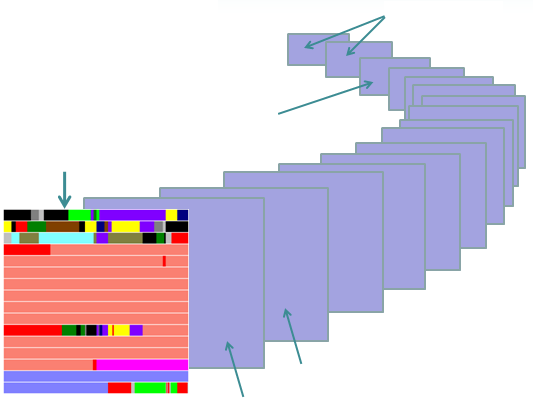- 3 Posts
- 186 Comments

 2·7 months ago
2·7 months agoWell, typically, being married for 60 years would also involve not dying for the past 70+ years…

 1·7 months ago
1·7 months agoWell, this isn’t a problem for smaller, less centralized services, so that might be an answer. Obviously not an answer big corporations will bring to the table, but ultimately, it might simply be among the reasons why users do still prefer smaller services.
Yeah, that is a valid opinion to hold. I am saying that trust is garbage.
You could consider compiling the KeePass app yourself, if you’re worried about that one in particular.
A guy I used to study with, decided that he just wouldn’t have a password manager on his phone.
I’ve certainly considered switching to a Linux phone for that, among many other reasons…
I watched it on my phone in 1080p60 and the scale didn’t bother me. It’s not like I have to read a lot of text and the precise position of the player character is mostly irrelevant, too. Like, if you get hit by a train or something, the screen will flash red and you’ll react to it, too, so I’ll know what’s going on.
Well, and I don’t look at the screen at all times anyways. 🙃
Would like to see more of this journey…
This F-Droid-like model (also popularly implemented by Linux distributions) is usually considered an improvement in security.
The thing with FOSS is that ideally you don’t have to trust the developer at all.
In theory, you could read the entire source code and compile it yourself. Then you’d know for sure that no malware is included.Obviously, in practice, you can only hope that some nerds dig into the source code and notify journalists of malware-like behaviour.
It is no perfect protection. But it is the only tangible protection that FOSS actually delivers.What does not protect you, is to trust each individual developer. They could publish innocous source code and then build the release binaries from a version with the malware-like behaviour patched in.
But because you likely don’t want to compile each app yourself, you might still feel compelled to entrust that work to a third party. This is where the F-Droid team comes in. Rather than trusting each developer, you just have to trust a single team.
Well, and if an app is built in a reproducible build, then even the work from the F-Droid team can be verified.

 2·7 months ago
2·7 months agoI’m excited for these, especially with them likely coming for stable Firefox soon, too. My $DAYJOB hands out Ubuntu laptops and every time, we have to scrape off the Firefox Snap, because e.g. saving images doesn’t work and the Downloads directory is in some mystical place somewhere underneath
~/snap/. These APTs will almost restore the usability of other distros…

 2·7 months ago
2·7 months agoI’m having a hard time figuring out, if these exist elsewhere, but over here, I can buy dried soy shreds, which are really great for pasta.
Here's a product I can buy over here, to give you an idea.
So, those are roughly meatball-shaped. There’s also smaller one’s which kind of work in sauces like minced meat.
They don’t taste like meat, more like wheat, but they give you the same protein and chewiness and can be kept in a cupboard basically until the end of time.
Ültrafast
Wenn beim Angelsächsischen mal wieder das Sächsische durchkommt…
 2·7 months ago
2·7 months agoAs the others already said, it’s like that in the YouTube title, but funnily enough, this actually ties back into this story.
You see, there’s three ways of going about content moderation:
- Basically don’t do it and tell advertisers to go fuck themselves.
- Completely overdo it with shitty word filters.
- Actually have enough moderators to make sensible decisions.
Companies being companies, the third option is, of course, not an option.
And so, you’ve got eX-Twitter trying to do the first option.
While, for example, Google and TikTok are firmly on the second option.And that is why you cannot write “fuck” into the title of a YouTube video. Nor any other word that could in certain contexts be bad for advertisers.

 6·7 months ago
6·7 months agoIf it helps, the Windows/Linux logic is basically:
- Ctrl key for triggering actions within an application.
- Alt key for navigating the UI of an application via the keyboard.
- Meta/Super/Windows key for triggering actions outside of applications (on the OS level).
Well, and Ctrl, Alt, Shift also serve for alternative characters when you’re typing. And some application or OS shortcuts wildly combine modifiers for more complex keybindings. And of course, some applications just didn’t get the note of how this generally works. I won’t claim, it really follows rules, but yeah, it’s not generally complete chaos either.

 4·7 months ago
4·7 months agoI think, what you’re describing used to be a thing, but there’s now a somewhat different, more granular way of rebinding keybindings:

However, it should be said that these will only apply within KDE applications. If you’re using third-party stuff, like Firefox, GIMP, VLC etc., they won’t apply.
If you really want to go hard on rebinding all kinds of keys for any application, you can also do things like these:

As cool as both of these are, and as much as I would still generally recommend picking KDE for these kind of customization possibilities, I wouldn’t recommend overdoing either. You won’t be able to use other PCs anymore…
Pictures are probably better than a thousand words here:

 102·7 months ago
102·7 months agoI’m a massive fan of GUIDs, too, but you’d have no protection from rogue instances reusing GUIDs of existing posts…

 4·7 months ago
4·7 months agoInteresting, I didn’t know that, but it doesn’t really change anything about my comment. Mozilla can offer APIs in addition to what Manifest v3 offers, allowing extensions that want to do these things to do them. It’s already the case today, for example, that uBlock Origin makes use of additional APIs for more effective ad blocking on Firefox.
Well, reading that back, the above comment is maybe a bit harsh, because I hardly know anything about Grayjay specifically. They do seem to have a grander vision where they combine all kinds of services, not just YouTube, and maybe they really are hoping that Google won’t ToS them.
But yeah, the way I imagine this will go down, is that Grayjay will grow for a bit, until Google notices losses from this new competitor. Then Grayjay will receive a letter that they’re in violation of the YouTube ToS. Grayjay will try to get that resolved, but no one at Google responds. Eventually they’ll be forced to take out the YouTube integration, making the app significantly less useful, which is its death sentence.
I don’t quite understand how their monetization model works, so I don’t know who will lose money here, but I imagine someone will.
Ultimately, they’re building a business reliant on Google, which has never been a good idea.

 3·7 months ago
3·7 months agoMozilla will want to be API-compatible, but there’s nothing inherent to the API that requires the arbitrary content-blocking limitation that Google put in. So, Mozilla will be API-compatible without adopting this shitty limitation.

 6·7 months ago
6·7 months agoYou need to tap 7 times on a random UI element, deep down in a settings menu. There is no way any instructions could direct a non-techy to do that, even if the non-techy wanted to.






In principle, I agree, but I feel like part of that is just AAA vs. indie.
AAA games need to provide lots of lukewarm content, because many more casual players will buy them and expect much bang for their buck + haven’t seen this lukewarm content a million times already.
On the other hand, indies will basically only be bought by people more enthusiastic about the hobby. As such, they have to pick out one or two aspects and excel at them, so that it’s something new for that crowd.
Hello Games was indie and unknown at the time, so likely only attracted that gaming enthusiast crowd, which would have been more easily bored by the extremely lukewarm content in Starfield.